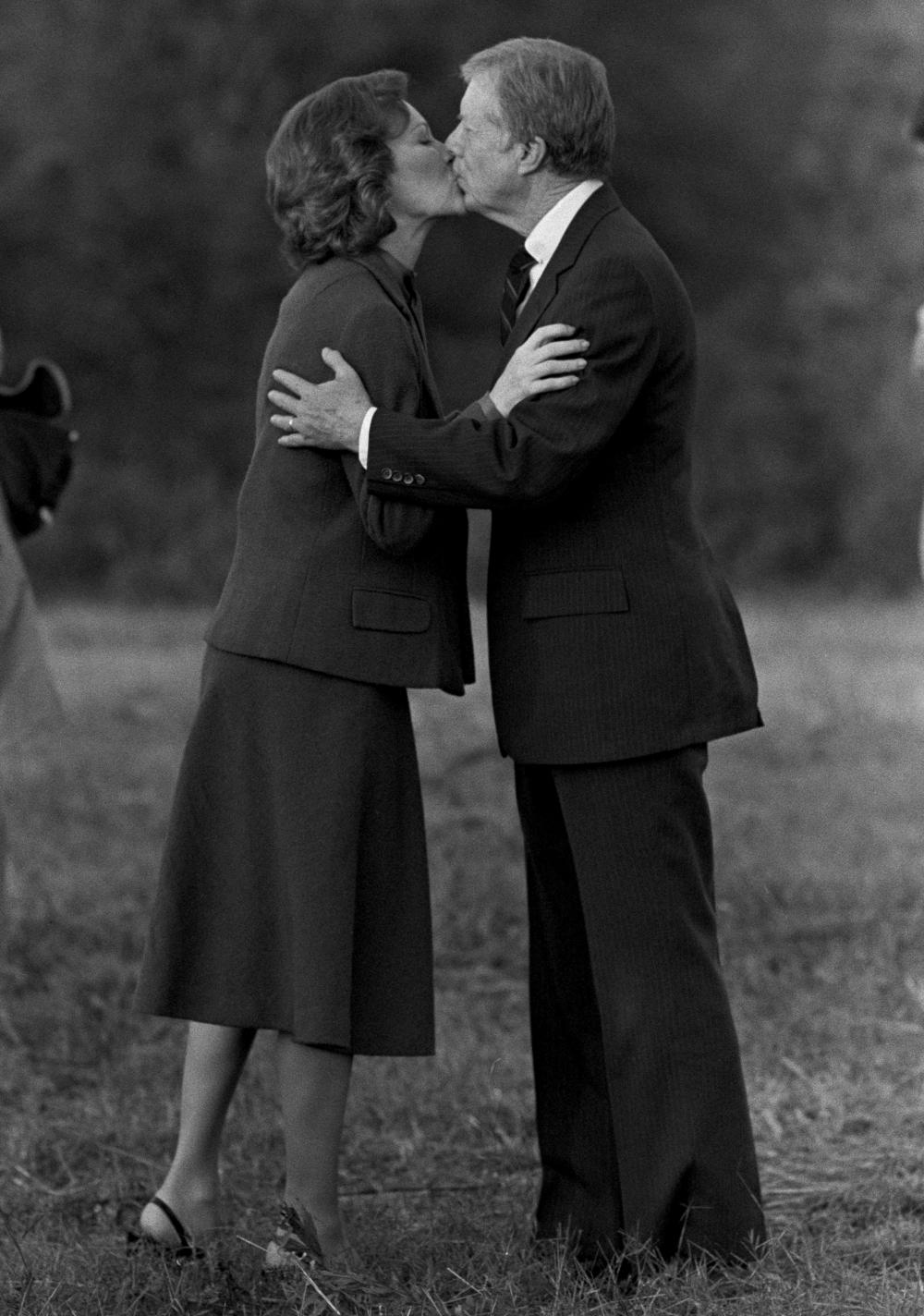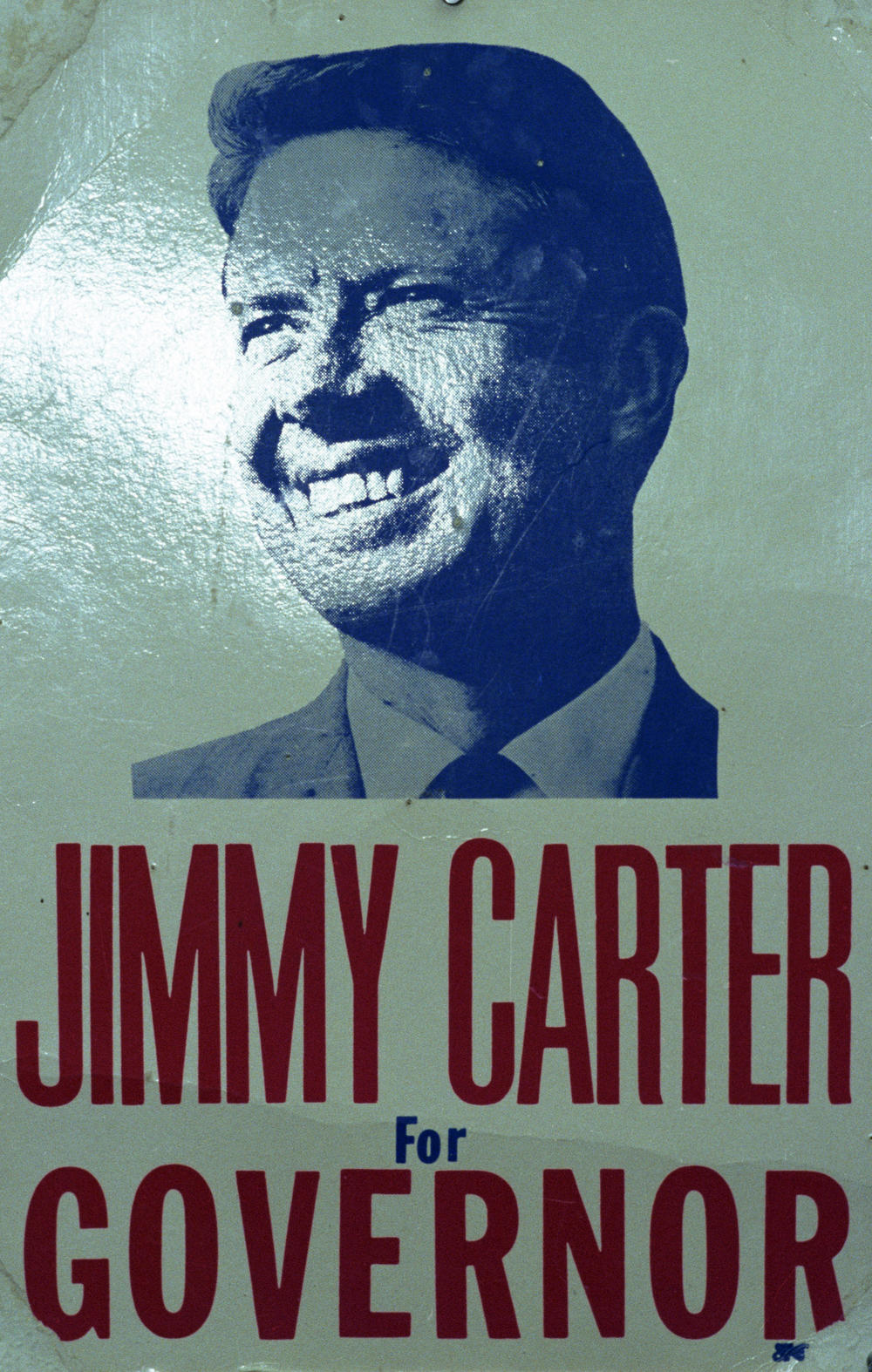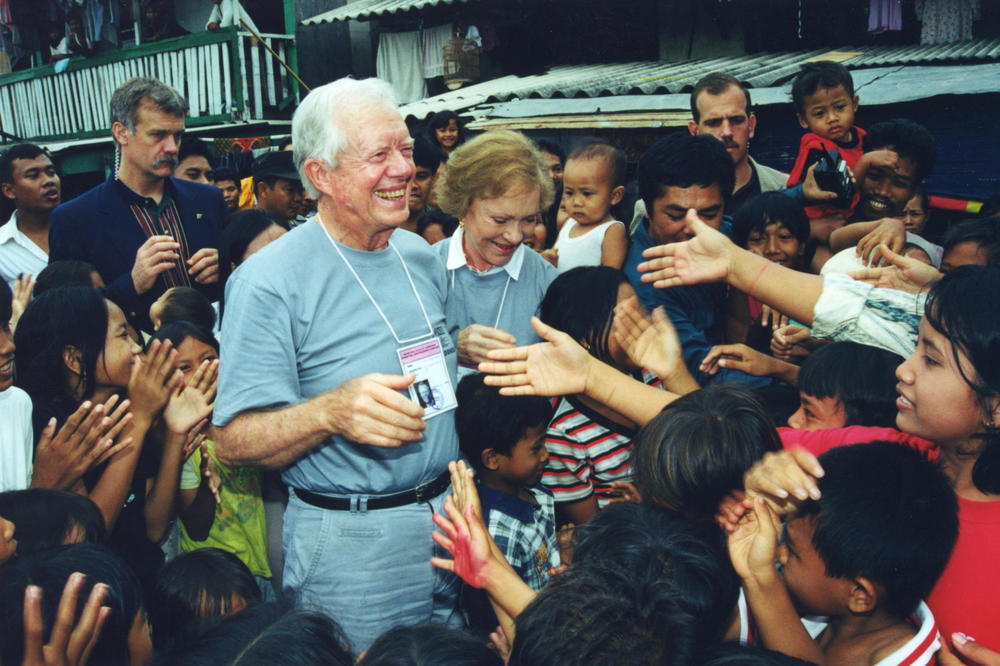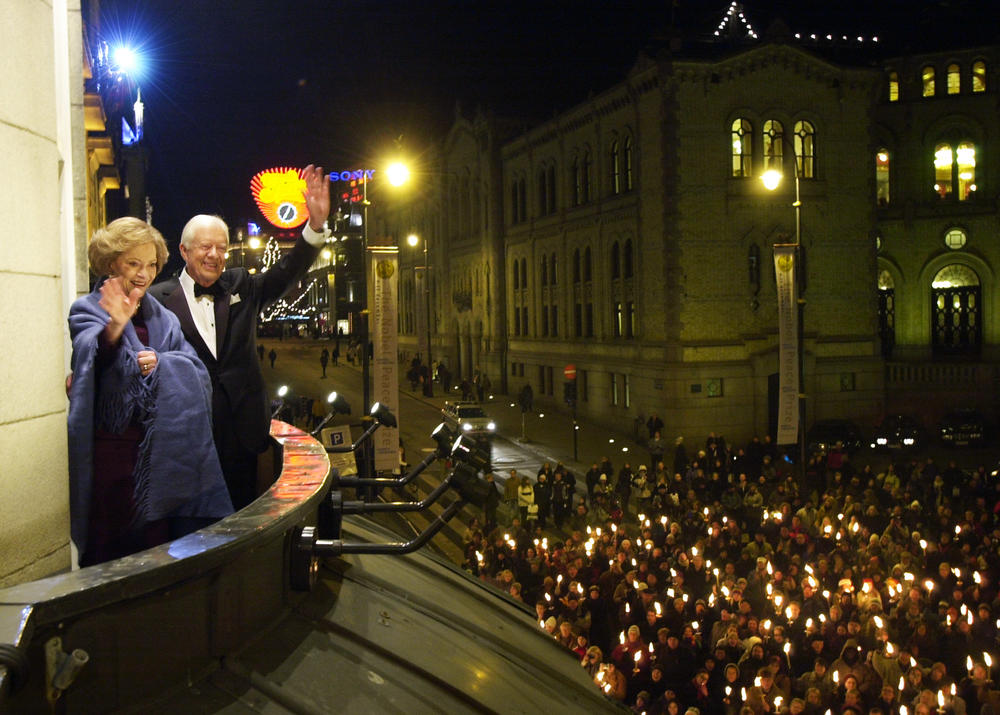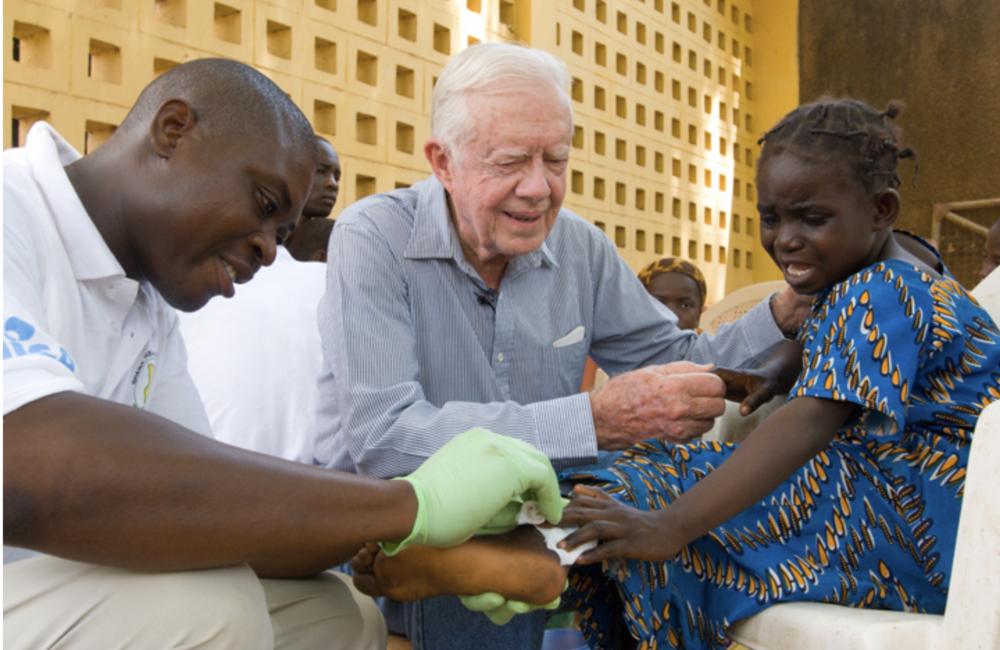
Caption
Lillian Carter holds a 1-month-old Jimmy Carter.
Credit: Jimmy Carter Library

Caption
In 1928, the Carter family moved to a 350-acre farm near Plains in the tiny community of Archery, Ga. The young Carter is pictured here atop his Shetland pony named Lady.
Credit: Jimmy Carter Library

Caption
Jimmy Carter was admitted to the United States Naval Academy in Annapolis, Md., in 1943. He graduated in 1946.
Credit: Jimmy Carter Library

Caption
This photo was taken on July 7, 1946, when Rosalynn Smith and Jimmy Carter were married in Plains, Ga.
Credit: Jimmy Carter Library

Caption
In the Navy, Jimmy Carter was a submariner serving in both the Atlantic and Pacific fleets and was chosen for the nuclear submarine program. He rose to the rank of lieutenant.
Credit: Jimmy Carter Library

Caption
Jimmy Carter standing in a peanut field.
Credit: Courtesy of Special Collections and Archives, Georgia State University Library

Caption
The Carter family at the table.
Credit: Courtesy of Special Collections and Archives, Georgia State University Library

Caption
From left: sister Ruth Carter, Jimmy Carter, mother Lillian Carter, brother Billy Carter, and sister Gloria Carter pose for a photo Dec. 3, 1966.
Credit: Jimmy Carter Library

Caption
In this Sept. 15, 1966, file photo, then-Georgia State Sen. Jimmy Carter hugs his wife, Rosalynn, at his Atlanta campaign headquarters.
Credit: AP

Caption
Jimmy Carter campaigns during his run for governor of Georgia.
Credit: The Carter Center

Caption
Then-gubernatorial candidate Jimmy Carter making notes during the primary race for the Democratic nomination in 1970.
Credit: AP

Caption
Jimmy Carter Signing Proclamation
Credit: Courtesy of Special Collections and Archives, Georgia State University Library

Caption
Rosalynn Carter walks ahead of her husband, Democratic presidential candidate Jimmy Carter, shaking hands with persons greeting them on arrival in Asheville, N.C., May 2, 1976, where they attended a $1,000-a-plate fundraising dinner.
Credit: AP

Caption
During the first week of his presidency, Jimmy Carter signs a request to Congress to pass the Emergency Natural Gas Act, Jan. 26, 1977.
Credit: Jimmy Carter Library

Caption
President Jimmy Carter greets schoolchildren April 12, 1978.
Credit: Jimmy Carter Library

Caption
U.S. President Jimmy Carter and singer Dolly Parton embrace in the receiving line at the White House in Washington, Tuesday, Oct. 2, 1979. President Carter hosted a luncheon in the Executive Mansion for a group of country music entertainers.
Credit: AP

Caption
On Jan. 14, 1979, President Carter accepted the Martin Luther King Jr. Nonviolence Peace Prize at Ebenezer Baptist Church in Atlanta.
Credit: Jimmy Carter Library

Caption
In 2002, former President Jimmy Carter was awarded the Nobel Peace Prize.
Credit: The Carter Center

Caption
Beginning in 1984, Jimmy and Rosalynn Carter volunteered one week a year to build homes for Habitat for Humanity. Jimmy Carter is pictured here working in the Watts/Willowbrook community of Los Angeles in 1995.
Credit: The Carter Center

Caption
Jimmy Carter taught Sunday school regularly at Maranatha Baptist Church in Plains after he left the White House.
Credit: The Carter Center

Caption
Jimmy Carter and Rosalynn Carter help cut the ribbon at their new clinic on August 22, 2018.
Credit: The Carter Center

Caption
Former President Jimmy Carter and former first lady Rosalynn Carter pose for a photo during President Joe Biden's and first lady Jill Biden's visit with the Carters in Plains, Ga., April 29, 2021.
Credit: The Carter Center
